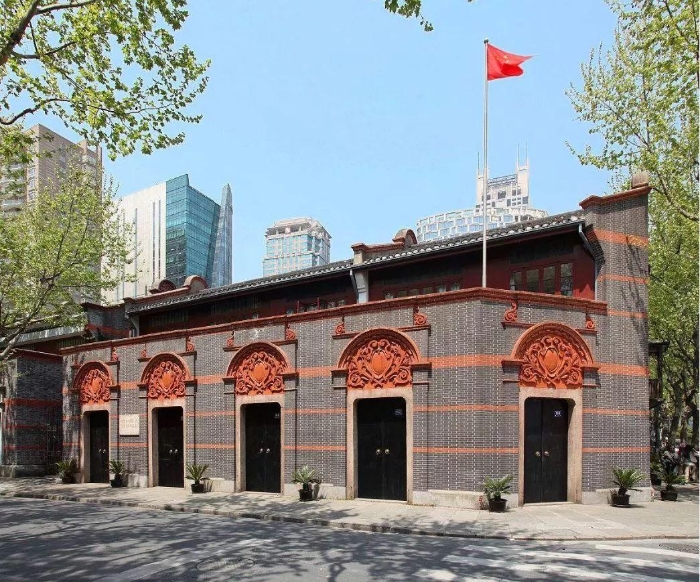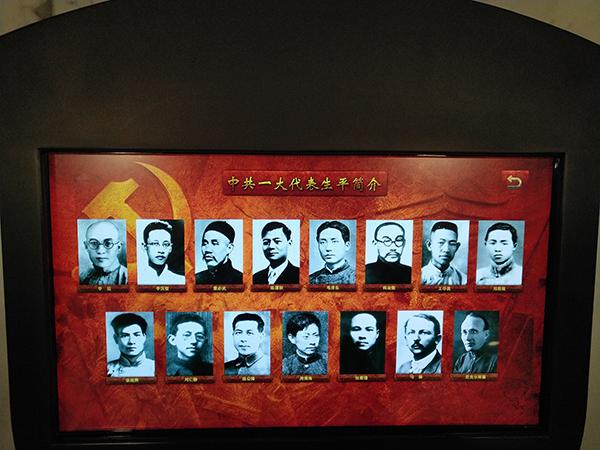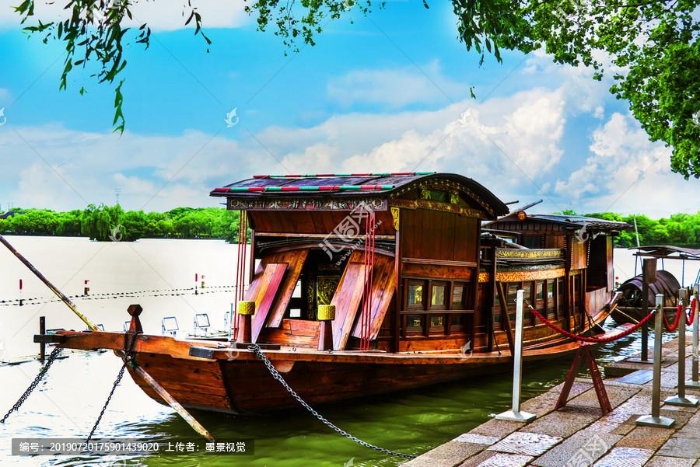1921
July 23-early August,1921
The First National Congress of the Chinese Communist Party was held in Shanghai. The 12 delegates to the congress were from the Communist groups in various parts of the country and from those in Japan. They were Mao Zedong, He Shuheng, Dong Biwu, Chen Tan- qiu, Wang Jinmei, Deng Enming (Shui nationality), Li Da, Li Hanjun, Zhang Guotao, Liu Renjing, Chen Gongbo and Zhou Fohai.There was another delegate named Bao Huiseng who was appointed by Chen Duxiu. These delegates represented more than 50 Party members. Two representatives from the Communist International, Malin and Nicolsky, also attended the congress. On July 30, the meeting had to be adjourned upon the sudden appearance of detectives on the scene. It was resumed on the final day on board a boat on Lake Nanhu in Jiaxing County, Zhejiang Province.
The central task of the congress was to discuss the question of officially founding the Chinese Communist Party. The congress adopted the Party programme and decided on the name of the Party as the Communist Party of China and on the objectives of the Party as follows: to overthrow the bourgeoisie by means of the revolutionary army of the proletariat, to rebuild the country by the labouring classes and to work for the ultimate elimination of differences between classes; to establish the dictatorship of the proletariat in order to attain the objective of class struggle, that is, the elimination of classes; and to abolish ownership by capitalists and establish ownership by the entire society through confiscating all the means of production. The Party programme enunciated explicitly the need to get the workers, peasants and soldiers organized and to disseminate communism and it recognized social revolution as the dominant policy of the Party. The programme also defined the organizational principle of democratic centralism and the discipline of the Party. The congress also adopted the “Resolution on the Present Tasks,” according to which the central task of the Party after its founding was to get the working class organized and provide guidance to the workers' movement and the Party should adopt a policy of independence to protect the interests of the proletariat in the struggles against the war- lords and bureaucrats and for freedom of speech, the press and assembly. A completely new-type and unified political party of the working class had thus emerged in China that took the realization of communism as its goal and Marxism-Leninism as its guide for action. The congress elected Chen Duxiu, Zhang Guotao and Li Da to form the Central Bureau with Chen serving as its secretary.


